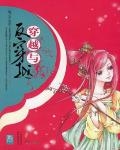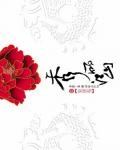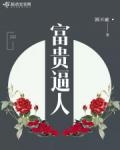The second volume is full of glory and splendor in the capital, and the spirit is full of vitality in the foggy city. Chapter 330 Major Events (12)
Subtitle of this chapter: Okay, okay, I’ll take you to Ireland to see a movie right away.
"July 24, 1927, is a day destined to be remembered in history. In many former colonial countries, this day is even regarded as a holiday as important as the founding of a nation or independence, and is known as Anti-Colonial (British ) Republic (National) Day.
Because of this incident, the Shandong issue became the focus of global attention. At the Washington Conference held later, the Japanese side was forced to make this issue one of the official topics of the conference.…
After mediation and arduous negotiations by all parties, the two countries reached an agreement to return the sovereignty of Qingdao.
Although Miss Lin Huiyin's public publication of "A Letter to Britain and the People of the World" did not receive positive reviews from the mainstream media in Britain and some imperialist countries, some conscientious intellectuals in these countries also recognized this form of resistance. Members of the Second International published articles expressing a certain degree of approval.
In other countries and regions, this great anti-colonial declaration was unanimously appreciated and welcomed.
After this, Lenin personally sought information from Chinese comrades about the Hongmen and described the organization as a very revolutionary quasi-political group in history.
The Soviet high-level officials also had many praises for the "Hibiscus Corps" and the "723 Incident".
It is said that the Third International also wanted to absorb the "Hibiscus Legion," but this organization suddenly disappeared in history. Although some organizations have emerged under the banner of the Hibiscus Legion, investigations have found that none of them have any connection with the "723 Incident."
There is an unconfirmed claim that the main members of the Hibiscus Corps went to Southeast Asia and joined the Chinese anti-colonial movement there.
And this incident also affects us in the United States of America.
Before this, most Americans thought the Hibiscus Corps' actions were extremely despicable, but they were still a violent group that should be condemned. However, after this, even those who strongly opposed the Hibiscus Corps only opposed their means, not their goals.
Another consequence was that the image of Chinese people suddenly improved a lot. Many Americans realized that they were not all insensitive and cross-eyed people, but also passionate idealists among them.
At the same time, there was a surge of Chinese people in North America joining the Hongmen..."
"Bang!"
A Hongmen disciple rudely knocked open the door of the Anliangtang leader's office and said breathlessly, "Boss, Xiangzhu. Outside, outside, outside..."
It finally came!
Situ Meitang and Huang Jishi looked at each other and sighed deeply.
Huang Laoshi said generously, "Boss, you go first! Go to San Francisco or return home to avoid the limelight. I'll take care of this!"
Situ Dalongtou waved his hand and said, "Old Huang, I am the leader of the hall, how can I leave? Let me deal with these policemen..."
"Boss, what police?"
The Hongmen disciple interrupted them again rudely, saying, "Those outside aren't police officers, but reporters. Oh, and there are also many applicants to join the Anliang Hall."
"Um?!"
“The July 23 Incident was undoubtedly a great inspiration and encouragement to colonists around the world.
In India, the incident sparked a split in the Indian National Congress, the second such split since 1907.
Although in September 1920, the Indian National Congress's Calcutta Special Conference and the Napur Annual Conference in December formally adopted Gandhi's non-violent non-cooperation plan and the party program drafted by Gandhi, making non-violent non-cooperation the guiding ideology of the Congress Party.
But the "723 Incident" undoubtedly made violent action a very inspiring option.
In February 1922, some people imitated the Hibiscus Corps and launched a violent incident. Gandhi announced the end of the first non-violent non-cooperation movement, which dampened the morale of the participants and caused ideological confusion within the Congress Party.…
In the hometown of the "Hibiscus Corps", the impact of the "723 Incident" was even more far-reaching.
The "Hibiscus Army" became idols for young people. Even Miss Lin Huiyin, who issued a statement on their behalf, became famous and was called "the most beautiful woman in the Republic of China."
At that time, the southern government praised the Hibiscus Corps highly, while the northern government, under social pressure, withdrew the condemnation statement it had originally intended to issue.
At the same time, this greatly inspired a group of communist revolutionaries who were meeting in Shanghai, China at the same time.
According to historical records, they held eight meetings between July 23 and 30, the last of which was an additional meeting for this incident. They decided to support the just actions of the Hibiscus Corps in the name of this newly established party.
This is also the first time that this political organization has expressed its views to the outside world..
"After the declaration was issued, US Secretary of State Hughes immediately issued a statement, hoping that Britain could resolve the incident "with restraint," "calmness," and "humanely."
President Harding even bluntly told the press that he could not see why the British would reject the Hibiscus Corps' request. It was just an apology. Could their face be more important than more than 50 lives?
Not only the United States, but many countries around the world, including the Japanese government, have issued similar statements.
But the British government has been slow to make a decision.
In reality, Prime Minister Lloyd's cabinet was completely unwilling to make such a public apology. He even privately stated that he would rather his own cabinet fall than resolve the "723 Incident" in this way.
Fortunately, the Hibiscus Corps weren't brutal terrorists. Instead, they were a group of creative activists. They ended this event that shocked the world in an unexpected way..."
—Excerpt from Olak Hussain's master's thesis in political science and international relations at Columbia University, "The Political Consequences of the July 23 Incident"






